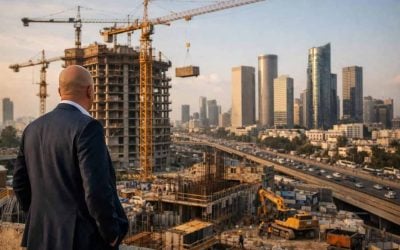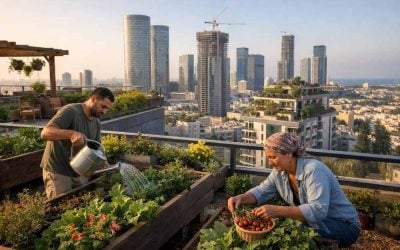Have you ever dreamed about buying land today and waking up tomorrow rich? Sounds amazing, right? But what if I told you there’s a hidden danger that many investors completely overlook, costing them a fortune? Let’s break it down step-by-step, using clear and easy explanations, so you never fall into this costly trap.
What’s the Big Deal with Buying Land Anyway?
Buying land, especially farmland that’s supposed to turn into neighborhoods or apartments later, is very popular. Investors buy cheap farmland today, hoping it’ll change its use (called “rezoning”) in the future. This could mean big money if your farmland becomes a neighborhood full of houses or apartment buildings.
But here’s the thing—not all farmland is created equal. Sometimes, hidden surprises lurk that most buyers (and even some real estate experts!) completely miss.
The Huge Mistake Investors Are Making (and How to Spot It!)
Let’s start simple: imagine buying a piece of farmland that looks perfect. You see the green fields, you see the potential, and you’re excited. But what if there’s an invisible problem? Maybe, without realizing it, the land you’re buying is already planned to be a road or highway.
Here’s why that matters:
- Farmland (“Agricultural Land”): Regular farmland you buy cheaply today in hopes it’ll become valuable.
- Rezoning: Changing the official purpose of land—for example, turning farmland into land for houses or apartments.
- Land Consolidation (“Ichud VeChalukah”): This is a fancy term for combining pieces of land owned by many people into a single big project, then dividing them into smaller plots with building rights. Everyone gets a fair share—at least, that’s how it’s supposed to work.
- Building Rights: The official permission you get to build apartments, houses, or commercial buildings.
Now, here’s the tricky part:
If your land is marked on maps as a future road or highway, even if no road physically exists yet, your investment might be in big trouble.
Why Buying a Land Marked as a Road Can Be a Disaster
When the time comes to develop the land and share the profits (“land consolidation”), here’s what happens if your farmland is secretly marked for a road:
- Worst-case scenario: Your land doesn’t even join the main project. It gets left aside because it’s meant to be a road. You get no building rights at all—zero chance to make big money from houses or apartments.
- Second-worst scenario: Your land joins the project, but guess what? It’s valued as road land. What’s road land worth compared to regular land? Practically nothing. Usually about one-tenth the value of regular farmland. If other farmland is valued at $1 million per acre, your road land might be valued at just around $100,000. Ouch!
Real-Life Example: How a Road Could Cost You 90% of Your Investment!
Here’s how simple it can be:
- Regular Farmland: Worth around $1 million per acre.
- Road-marked Farmland: Worth only around $100,000 per acre.
That means you’d only get a fraction of the profits compared to your neighbors who bought regular farmland. It’s like buying a cake, but someone else eats 90% before you even taste it!
Easy Ways to Protect Yourself from this Hidden Trap
Okay, now that we know the risk, how can you avoid losing big money?
- Always Check the Official Plans: Before buying any land, look carefully at the city’s or town’s official maps. These are called “master plans” or “city plans.” Check if your land or any part of it is marked as a road or highway.
- Ask Direct Questions: Even if the seller, lawyer, or real estate company insists everything’s fine, ask directly: “Is any part of this land marked as a future road?”
- Get an Independent Expert: Sometimes sellers honestly don’t know what they’re selling. Hiring an independent expert who specializes in land use can save you from costly surprises.
Quick Checklist: What You Must Do Before Investing in Farmland
- ✅ Check official city plans: Ensure your land is marked for residential use, not roads.
- ✅ Hire your own expert: Don’t rely solely on the seller’s or realtor’s word.
- ✅ Confirm exact land valuation: Be clear about how the land will be valued in the future—make sure it’s farmland, not road land.
- ✅ Always ask tough questions: Better to ask awkward questions now than lose money later.
Too Long; Didn’t Read (TL;DR):
- Buying farmland expecting it to turn into neighborhoods can be profitable, but hidden dangers lurk.
- Land secretly marked for roads can cause you to lose almost all your potential profit.
- Road-marked land is usually worth just one-tenth of regular farmland.
- Always check official plans and consult independent experts before buying.
Final Thought: Investing in farmland can be incredibly rewarding—just make sure you know exactly what you’re buying, so you don’t accidentally invest in what turns out to be a very expensive road to nowhere!




